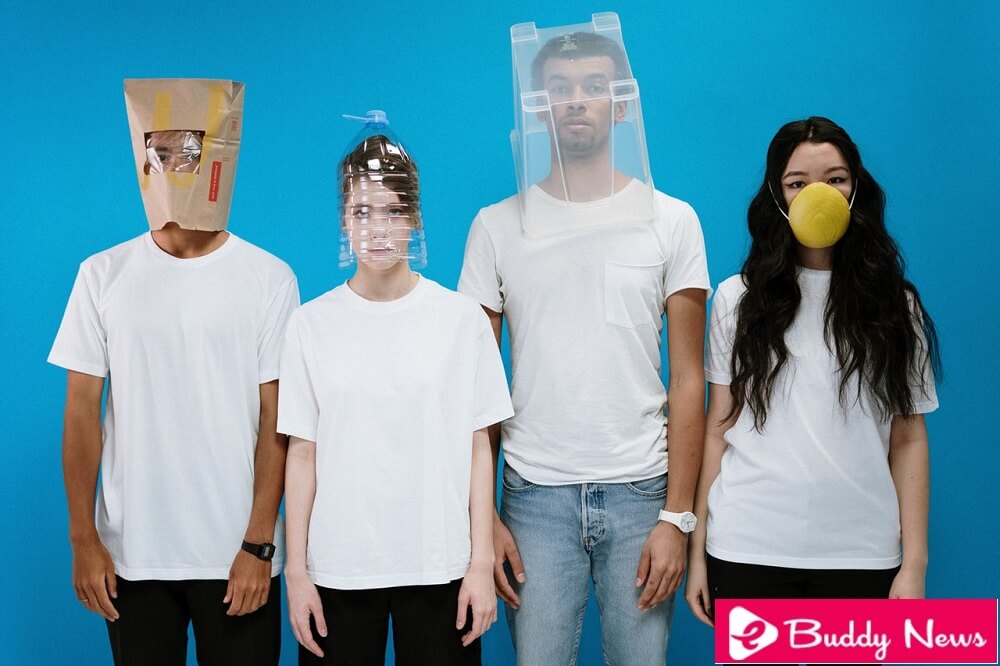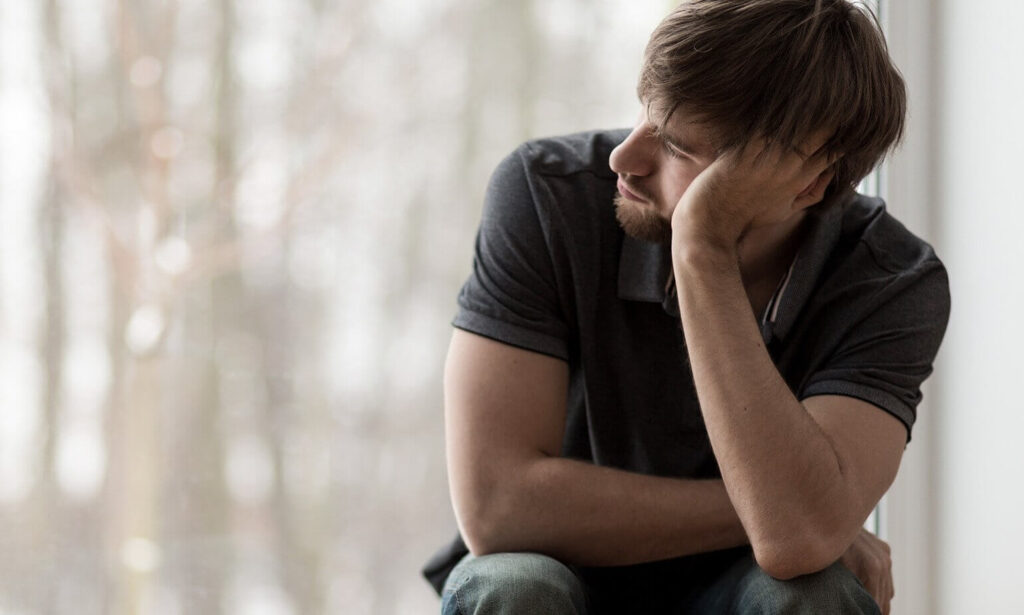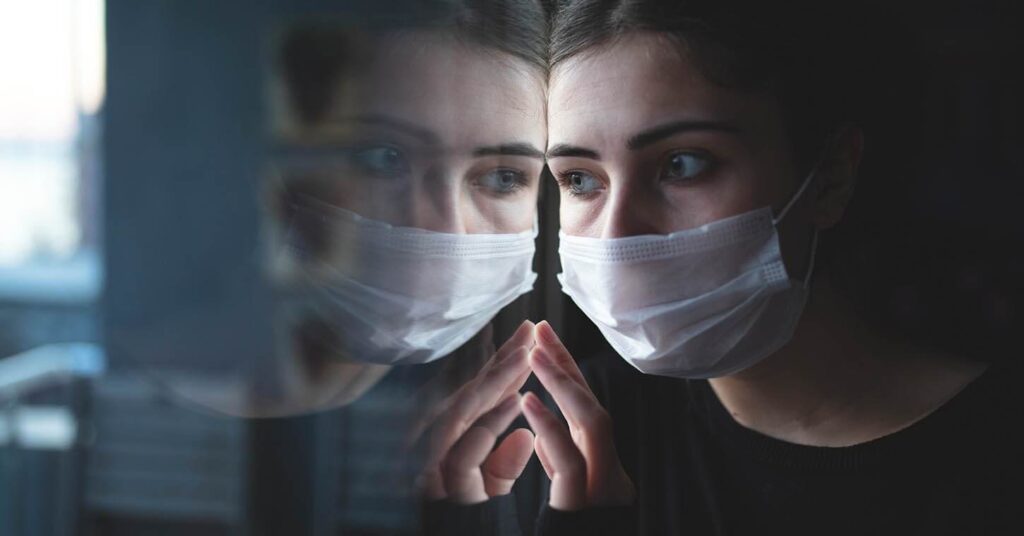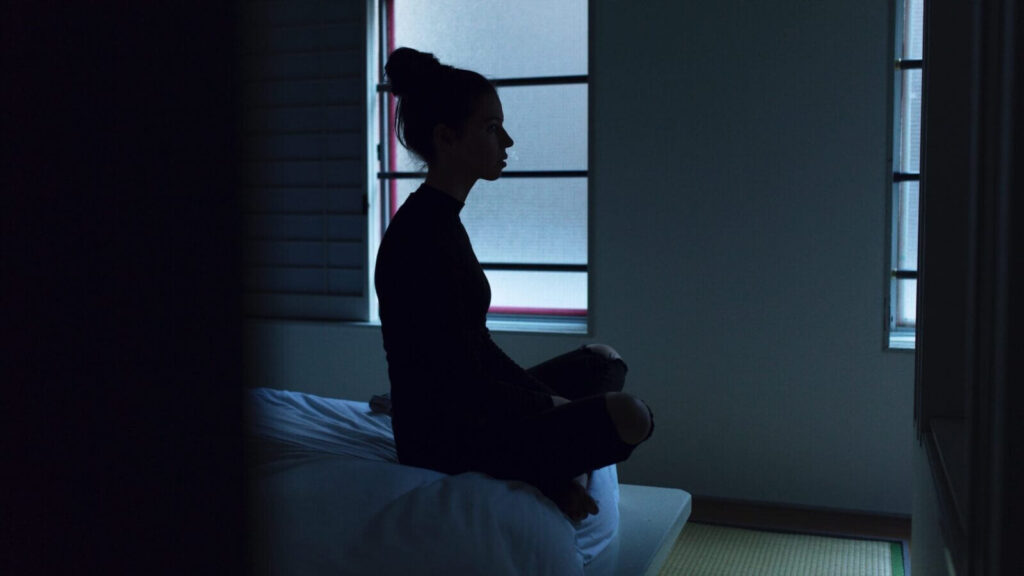Pandemic Corona Blues- Reflections On Mental Health

The term “corona blues” came up during the coronavirus pandemic to describe the emotional and psychological state of the people who face it.
The current scenario is not entirely optimistic; we have already made many scientific advances towards prevention against COVID-19. Other solutions to prevent new infections and enable a complete resumption of trade and tourism are also underway.
Still, it will take time for the populations of the world to return to their usual routines. The Covid-19 fired many people, loved ones lost lives, drop outs of school indefinitely increased, and put personal projects on hold. Perhaps what makes the situation less unpleasant is knowing that we are all or have been in the same boat.
As a result of these events, there is great concern about mental health in current and post-pandemic times. Psychologists, doctors, philosophers, and researchers have already begun to prepare and predict the possible psychological consequences of the pandemic.
What Is Corona Blues?
The term “corona blues” describes the state of sadness, impatience, hopelessness, and anxiety arising from the COVID-19 pandemic. Social isolation caused, despite critical measures to combat the spread of SARS-CoV-2 around the world, caused and still causes a lot of discomforts.
People not only felt that a they confined themselves to their homes, but also experience boredom, fear, and restlessness. A considerable part of the individuals who continued the old habits suffered terrible consequences, such as infection by the coronavirus, the stay in the ICU, and the loss of loved ones.

The feeling of loss is also related to personal projects, professional careers, studies, friendships, and family contact. The pandemic has forced societies around the world to pause or completely change their lives.
Understandably, so many sudden and often unpleasant changes affect the way you see life and yourself. In Brazil alone, 63% of people felt anxiety symptoms during the pandemic, while 59% had depressive symptoms.
These data are from a survey, which places Brazil in the first place, among 11 countries, in the ranking of cases of depression and anxiety recorded during the coronavirus pandemic.
The corona blues refers precisely to this increase in cases globally.
Is Coronavirus Blues A Type Of Depression?
The main character of Depression is a mood disorder, Feelings of hopelessness, sadness, and emptiness. The depressive ceases to see meaning in his life, so he loses interest in hobbies, work, social relationships, and activities that pleased him.
The differences between passing sadness and depression are intensity and duration. It is possible to be sad for months but not develop depression. For example, someone who has lost a loved one can remain in mourning for months—performing Daily tasks generally during this period and meetings with friends are not entirely avoided.
After the time necessary to digest what happened, that someone returns to have a calm mood. It manages to resume everyday life, despite the sadness and longing. Therefore, he is not depressed.
It would identify depression if the grieving person could not leave the sad state within a year and had other symptoms, such as insomnia, lethargy, excessive sleepiness, negative thoughts, apathy, difficulty concentrating, irritability, and pessimism.

Therefore, it is possible to be constantly bothered by the COVID-19 pandemic but not depressed. Corona blues is not, in fact, a depressive disorder. However, it contributes to the onset of depression and other psychological conditions.
One of the concerns of scholars is the increase in the case of suicides. Data already show disturbing growth in some countries. In Japan, for example, the suicide rate has risen for the first time in 11 years due to the pandemic.
In the United States, a survey by the Centers for Disease Control and Prevention (CCD) revealed that one in four young people aged 18 to 24 years thought of suicide in June 2020, during school and university vacations.
Is The Corona Blues A Type Of Exhaustion?
In an interview, South Korean philosopher Byung-Chul Han explained that the pandemic corona blues also look like a form of exhaustion.
Han has been studying what he calls the “weary society” for years. For him, the capitalist society we live in is conducive to increasing psychological, physical, and emotional exhaustion.
In a constant state of production and concern for personal performance, people deprive themselves of living a life with quality and mental health. Thus, they get more quickly to mental and physical fatigue and can cause several mental disorders.
The philosopher commented that fear, worry, and idleness cause collective psychological exhaustion about the coronavirus pandemic. He named the coronavirus a “fatigue virus.”
People spend a lot of time talking and thinking about it, pulling daydreams into negative scenarios. They follow news excessively, complain to friends, and do not find healthy distractions, so they end up overloading themselves.
Causes Of Corona Blues
In addition to the reasons mentioned above, other factors cause corona blues.
Anyone is likely to feel highly discouraged during social isolation. Some, however, have more contact with adverse situations. It is the case of health professionals, for example, who are in frequent contact with deaths, bereaved relatives, crowded hospitals, and fear in the eyes of those infected.
Those who needed to take a break from life because of COVID-19 may also have depression, anxiety, post-traumatic stress, panic syndrome, among others.
After all, what will happen when they return to everyday life? How are they going to pay the bills by then and after that? Will they have to work double in the future? How will they get jobs in a saturated and economically destabilized market?
Several questions surround the mind of those who go through moments of adversity in this pandemic.
Likewise, those who had to work on essential services during quarantine felt vulnerable. The fear of infection is more significant when you need to leave the house every day, use public transport, and share the house with family or friends.
Another point associated with the corona blues is the perception of social and economic differences, which have been in evidence during the past year.
It is as to a study shows that 86% of the 281 residents reported depression-caught, and feelings of 90% resulted that they are no longer able to no enjoy daily activities. Death turned out to be the respondents’ number one concern.
How To Fighting Corona Blues?

Different sections of people such as University students, professionals under unemployed, self-employed, essential services, youngsters, residents of the periphery, individuals in vulnerable situations, indigenous people, the elderly, teachers, and children are just some of the social groups. They became an emotionally destabilized pandemic corona blues.
People will realize and measure the actual consequences over time, especially during the post-pandemic.
However, We can combat the coronavirus blues as emotional discomfort, although finding positivity amid so much despair and loss may seem impossible.
We need extra effort to take care of mental health in the pandemic which does not lead to corona blues. To find healthy distractions and means of expression. Otherwise, one can fall into a pathological routine and encourage the development of habits that are harmful to health, such as excessive alcohol consumption.
Do What You Like
Stop thinking about what you can’t do because of the pandemic. There’s still a lot you can do even though you’re at home most of the time.
If you have a passion for physical activity, run or exercise at home. If you like to go out with your friends for a drink, make video calls or go out only when your city government decrees that it is possible to do leisure activities. Adapt your hobbies if necessary, bringing them into the home environment.
Define New Plans
You do start other small projects to distract yourself when plans getting disturbed. Just as it harmed many people in the pandemic, others found space and opportunities to grow financially. It is a typical characteristic of human existence: there is always a good and a wrong side.
So focus on the bright side and make new plans, such as learning a language, acquiring a new skill, or taking a short course online. You can also aim for behavioral changes, such as “learn to be self-taught” or “learn to be organized.”
Think Positive
It’s hard to say “think positive” at a time like this. But if you stop to reflect, you’ll find there’s no need to harbour negative thoughts. They increase fear and hopelessness, and they make us sick for most of the day.
To curb burnout and the corona blues, think pleasant, happy thoughts. It doesn’t necessarily have to be about the pandemic. You can be optimistic about your career, your relationship, your family, and your growth as a person.














